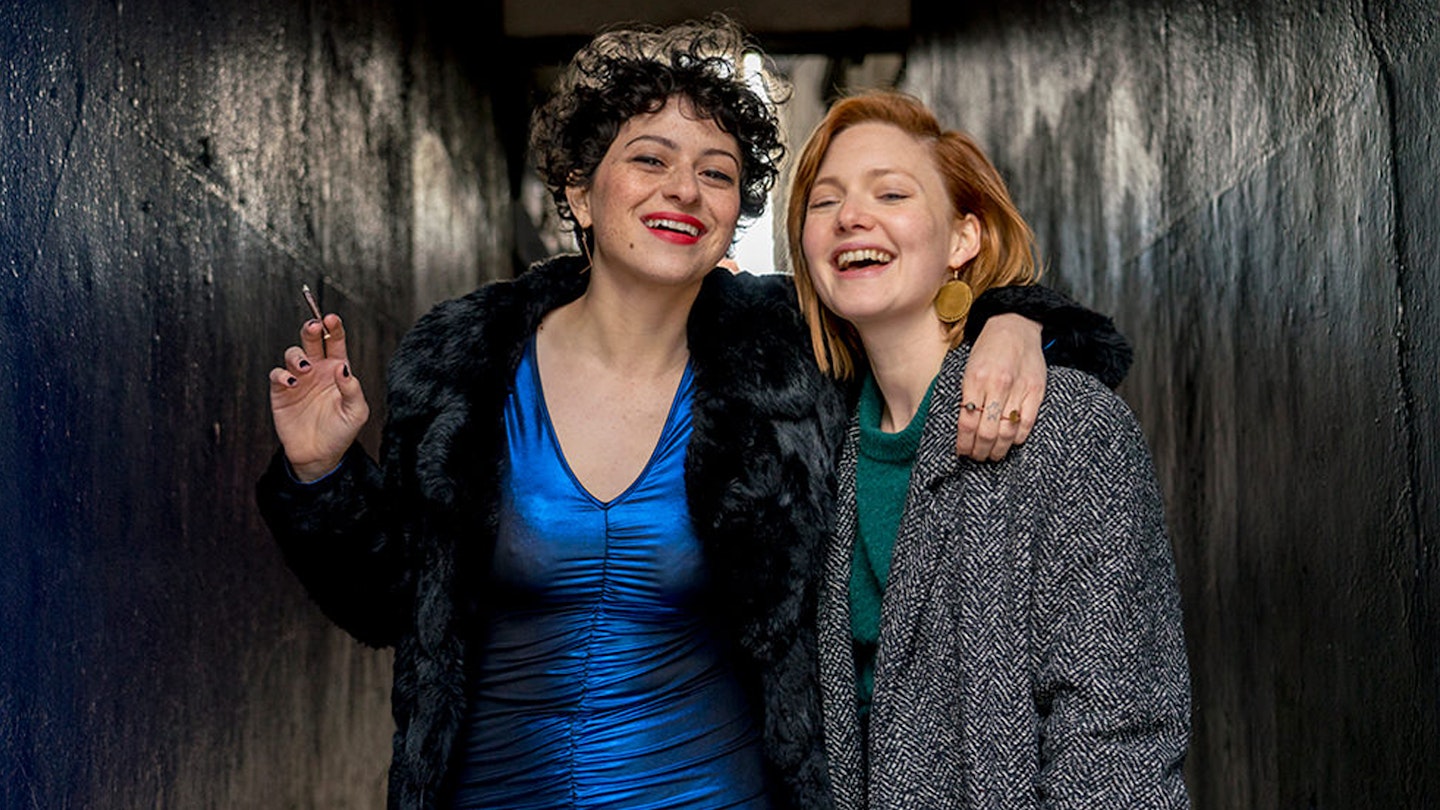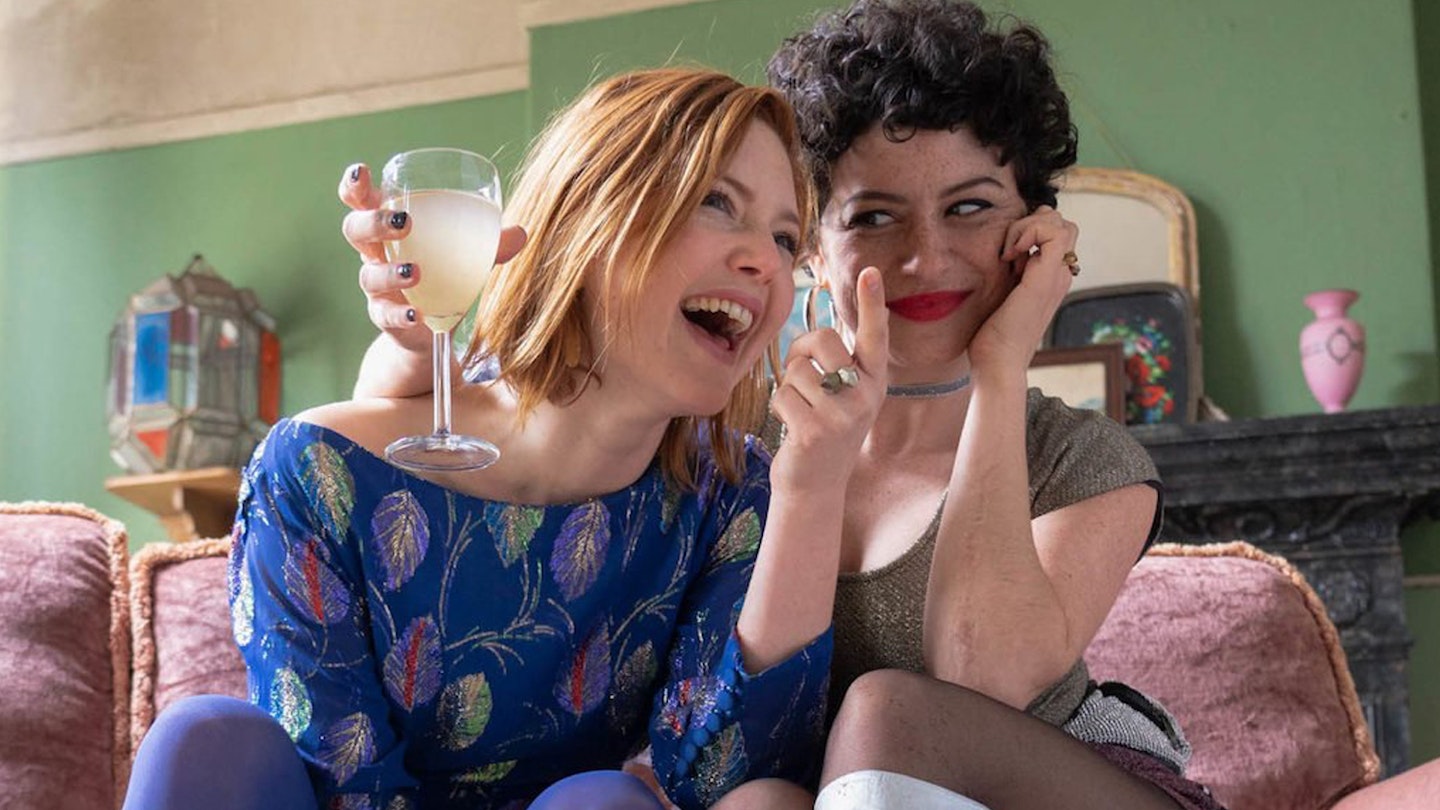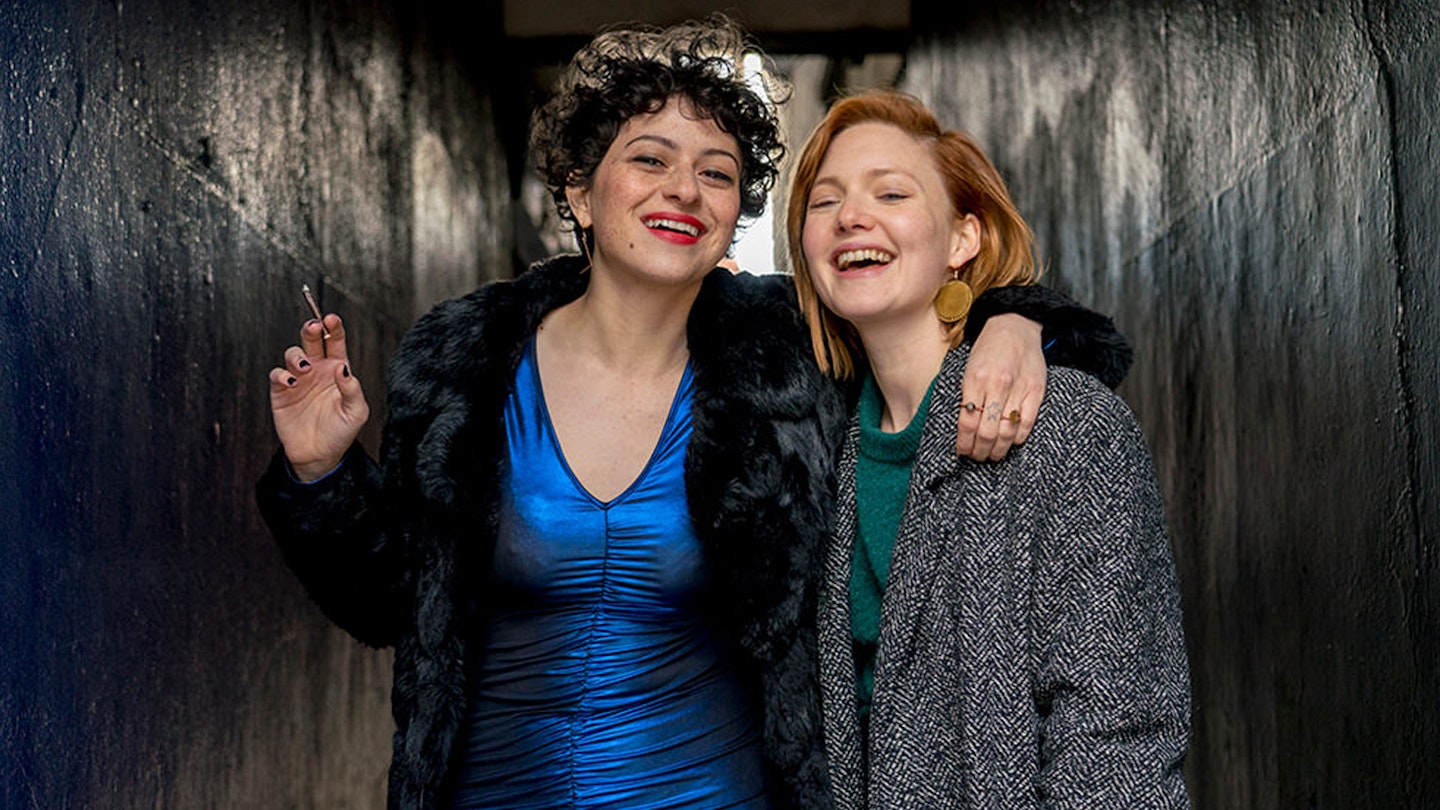A definitive scene in Animals — Sophie Hyde’s bawdy adaptation of Emma Jane Unsworth’s acclaimed novel — sees a well-meaning Laura (Grainger) try to lull her sister’s newborn baby to sleep. Upon completing the task, she instinctively places the baby on the bare floor, to instant howls of dismay from her on-looking sibling. It’s a perfect, gently funny moment that captures a new era of women on screen, caught adrift in the slipstream of their twenties, not quite equipped to grasp the burdens of adulthood.
Laura is 32 and frustrated, a shambolic author whose page count for her big novel has barely reached double figures. She finds solace in Alia Shawkat’s barista Tyler, a boozy muddle of fishnets, freckles and fake fur who lurches around Dublin in a constant fug of tequila and frontmen’s musk.

Where Laura has an eye to the future, Tyler is hell-bent on living in the now, a rising issue that sparks a stubborn emotional tug-of-war between the two friends. Things aren’t helped when Laura falls for the toothy charms of Fee’s classical musician in one of their local haunts. When she becomes engaged and moves out, the friendship takes a series of further tumbles as the pair succumbs to the ebb and flow of their growing indifference.
A passionately performed film about women baring their flaws and still being not just likeable but loveable.
Shawkat has earned her stripes as an indie darling of Hollywood, rising from secondary characters in Whip It and Green Room to more rambunctious leads in millennial murder mystery series Search Party and her self-written feature Duck Butter. In Animals, Shawkat strikes more of a comparison to Richard E. Grant’s raging protagonist in Withnail And I; an elusive and irresponsible bohemian-type, only doused in sequins. It’s her most extroverted role yet, and she owns every inch of it.
Though Tyler is undoubtedly the most enigmatic of the pair, it’s Grainger who delivers a career-changing performance as lost soul Laura. The ruinous nature of her relationship with Tyler requires some serious emotional manoeuvring, and Grainger — who is better known for plummy period dramas — relishes something with more bite.
It’s a joy to see both on screen together in such robust roles, done justice by Unsworth’s screenwriting. Her dedicated first screenplay doesn’t cut corners by demonising the women, so that even at their worst both characters are coloured with empathy, sparing the audience from judging the women in the same way that they judge each other. The cyclical nature of events does sag over the film’s runtime, but the magnetism of these two debaucherous comrades is compelling enough to forgive an occasionally lulling narrative.
Above all else, Animals is a passionately performed film about women baring their flaws and still being not just likeable but loveable. It’s a simple premise, but one that rarely makes it to the screen, and when it does it should be protected at all costs.




